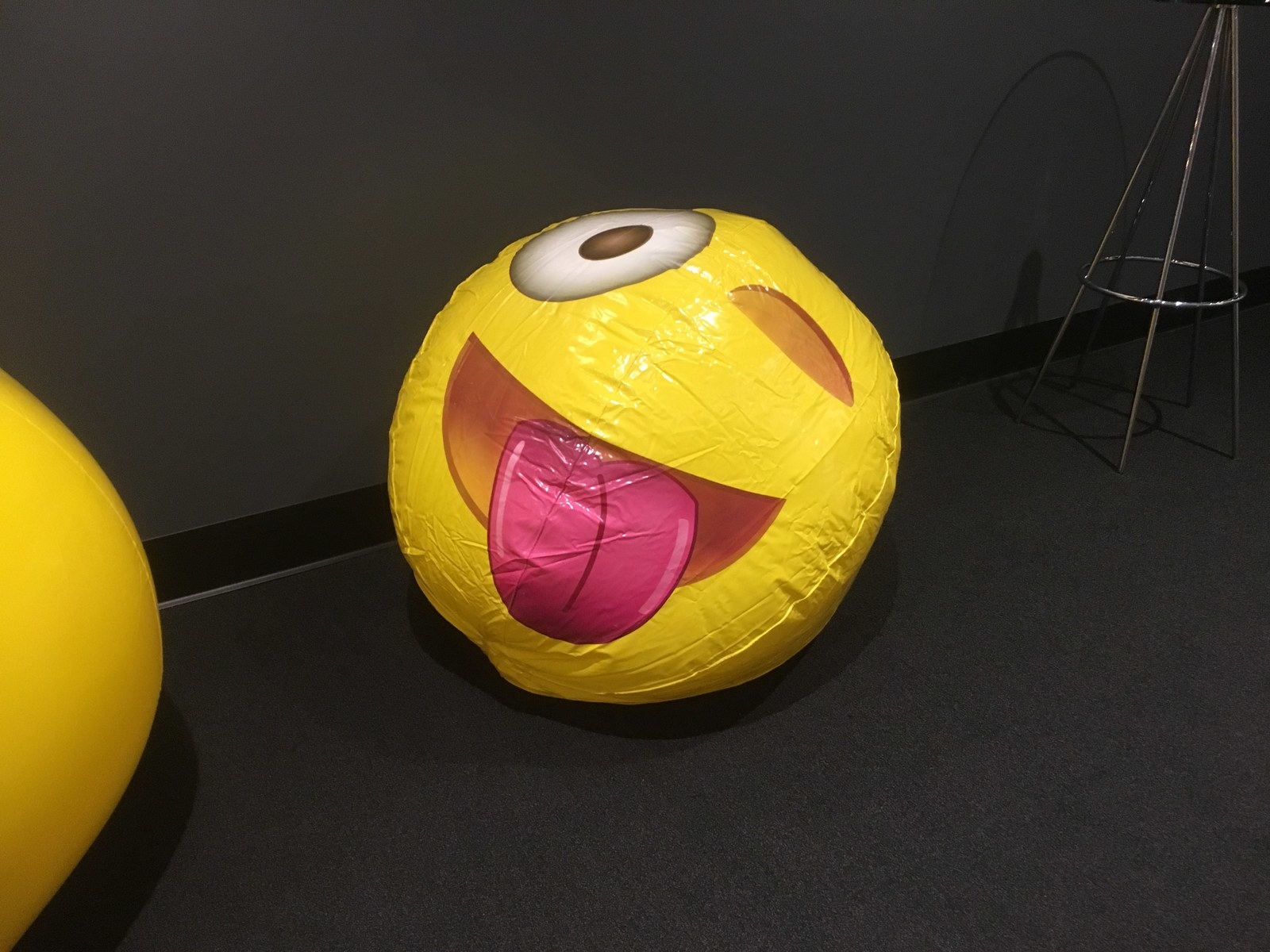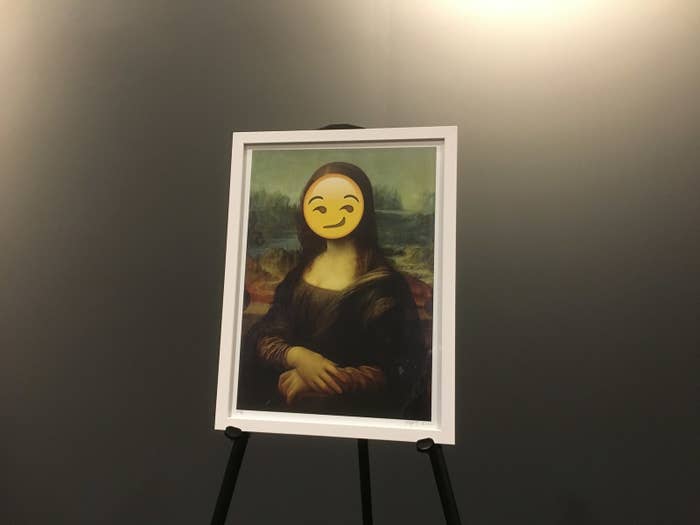
A lot of what was on offer at Emojicon 2016 this weekend — emoji chia pets, the emoji Mona Lisa, an eggplant-shaped vibrator — was what would you would expect. With its Emojimprov, Emoji Karaoke, and the Emoji Spelling Bee, the event was billed as a “celebration of all things emoji.” But for the event’s hundreds of attendees, who included copyright lawyers, a MOMA collection specialist, Google, Facebook, and Yelp employees, plenty of teenagers, and a balloon emoji artist, the event was more than just a chance to score emoji swag while wearing emoji costumes.
It was also a unique forum for emoji community members to voice their opinions in front of the Unicode Technical Committee, the small but powerful governing body of technologists who read and evaluate new emoji proposals and otherwise control the future of emojis.
But the emoji community’s enthusiasm for the subject matter goes beyond politics. Emojicon blended the highbrow and lowbrow, from smiling piles of poop to art theory, from vegetable-shaped sex toys to questions of racial inclusion. Emojis are goofy, but they help us express some of our basest emotions. By analyzing how we use them, we can learn a lot about ourselves.
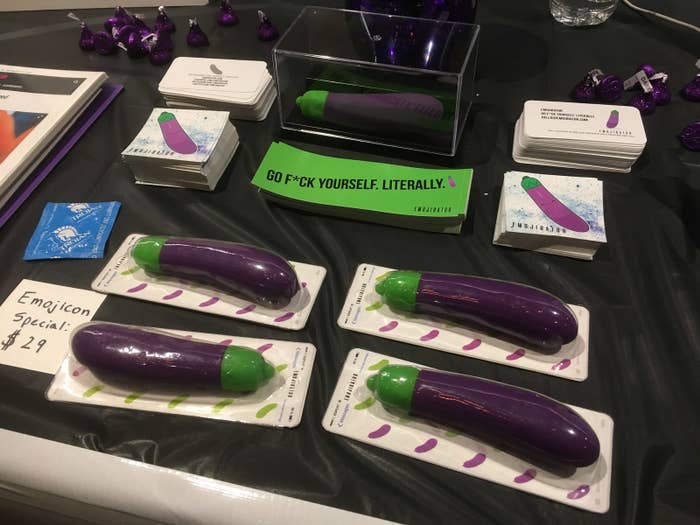
Democratizing Emojis
Emojicon brought together both the emoji powers that be — like some of the Unicode folks behind the new line of professional women emojis — as well as enthusiasts with little control over the emoji proposal system. This was their chance to propose, invent, design, and draw new emojis nonetheless.
The community’s embrace of democracy was most obviously on display during an open mic session on Saturday, when “internet linguist” Gretchen McCulloch made the case for more hand emojis that include American Sign Language gestures. A young man who’s translating the Communist Manifesto into emojis wanted an emoji for the hammer and sickle. Other suggestions included a peacock emoji, a biltong emoji, a meditation emoji, and a pretzel emoji.
“A pretzel can mean confusion. Pretzel logic can stand for a plot twist, thanks to its unique shape,” the pretzel advocate explained. “There is no other shape that expresses the confusion or knot that the pretzel stands for.”
In the hackathon room, half a dozen people gathered around a single table were brainstorming new science-themed emojis, inspired by the American Chemical Society’s charming line of Chemojis and GE's Emoji Science campaign.. A designer and startup CEO who had hoped to recruit whimsically minded engineers at the event kept busy sketching out emojis for every planet in our solar system.
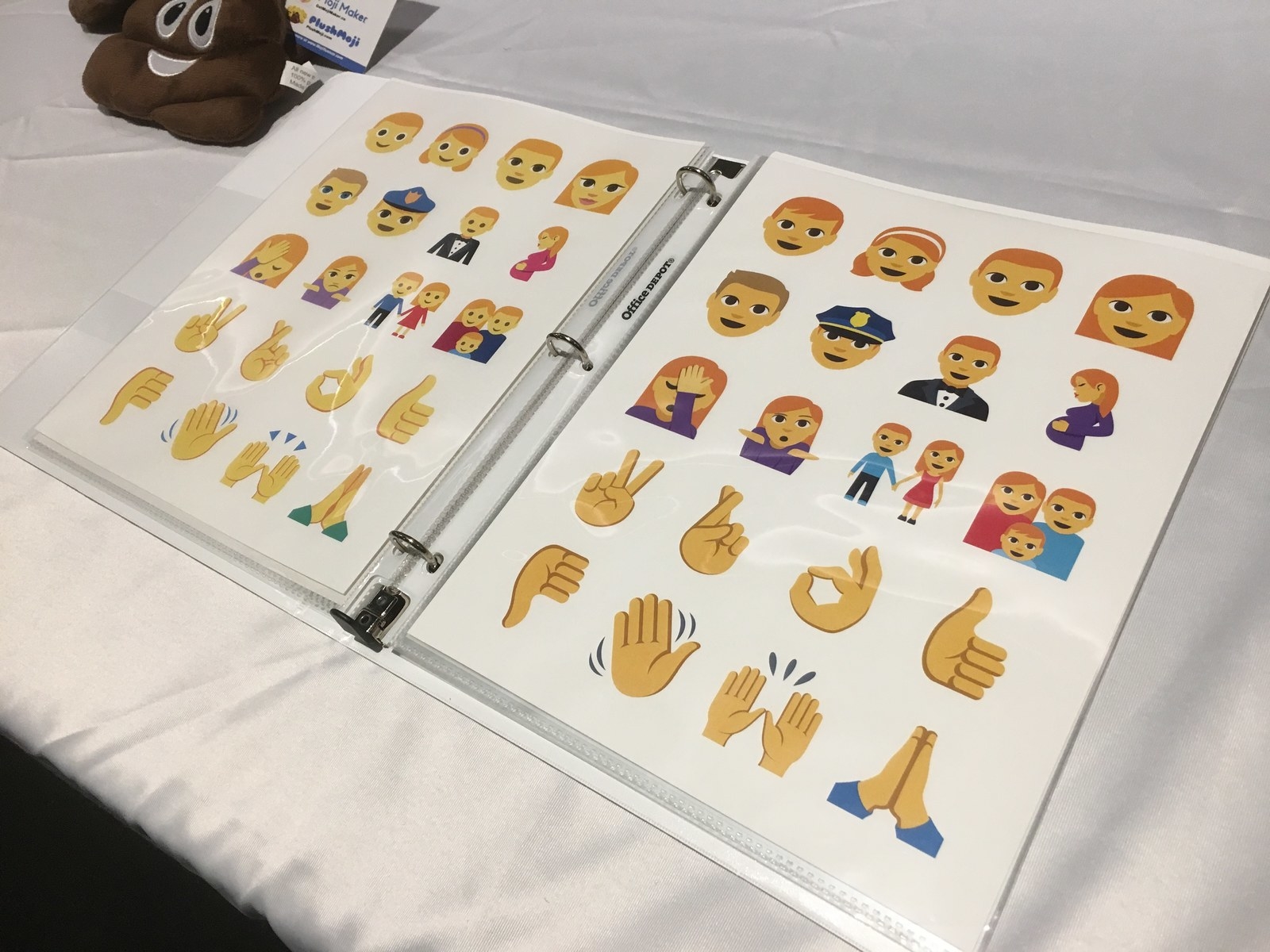
Emojis Get Real
Though Emojicon attendees share an enthusiasm for emojis, they didn’t necessarily always agree on the issues.
After Google art director Rachel Been led a talk on designing emojis, and the different styles used on different platforms, an audience member asked a tough question: Was Google going to keep its pistol emoji, now that Apple notably decided to change its version to a water gun in a recent update?
“We believe in being cross-platform, so our gun will stay,” Been responded, somewhat uncomfortably. “A lot of other platforms haven’t changed their gun, so we’re keeping ours.”
Emoji chia pets and emoji balloons aside, this was a serious question. But attendees were more riled up about an updated line of emojis for iOS 10 that Apple rolled out last week. Because the new images are less like symbols and more like illustrations, some people really hate them.
One Emojicon attendee displayed a handmade memorial for the booty-style peach, which will soon be replaced by a more biologically correct, but less anatomically titillating version.
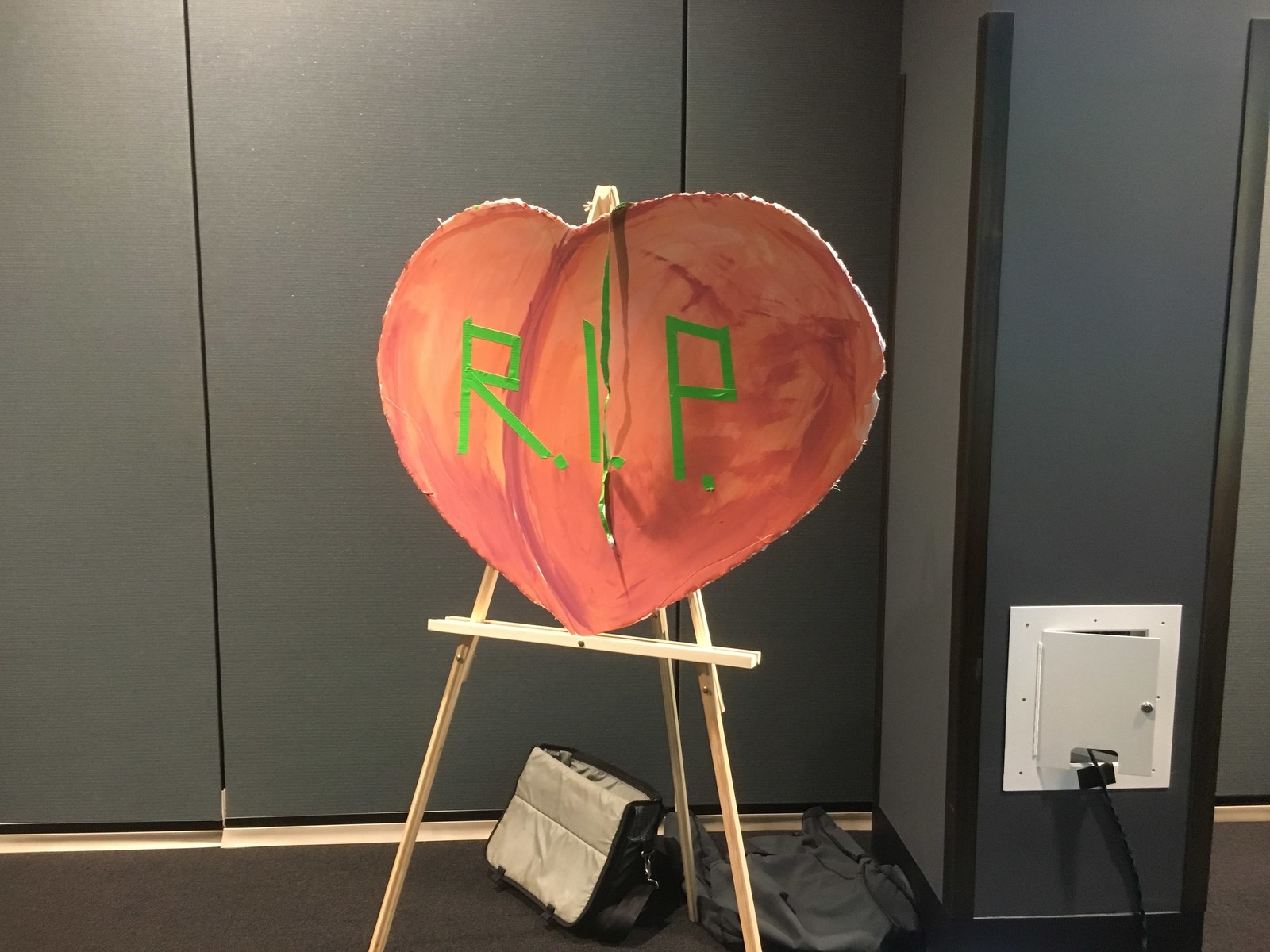
“I would argue that the new emoji are too detailed,” artist Niki Selken said during a talk that touched on, among other things, how the brain interprets alphabetic language differently from emojis. “Designers are upset.” In the back of the room, people spontaneously applauded.
Not everyone thinks realism is bad. The men behind Xpresso — a messaging app that generates custom, 3D GIF stickers — said they felt strongly that the more lifelike their animations, the more accurately they were capturing the human experience. COO Govindaraj Malehithlu gave this example: If your wife is mad at you, it’s better if your apology is accompanied by a tiny illustrated version of you kneeling and begging with hands clasped than simply a frowny face.
“It breaks the barrier,” said Malehithlu. “In person is the best communication, but through text and email, there is a wall and a barrier. Your real self, your real emotion, doesn’t come out.”
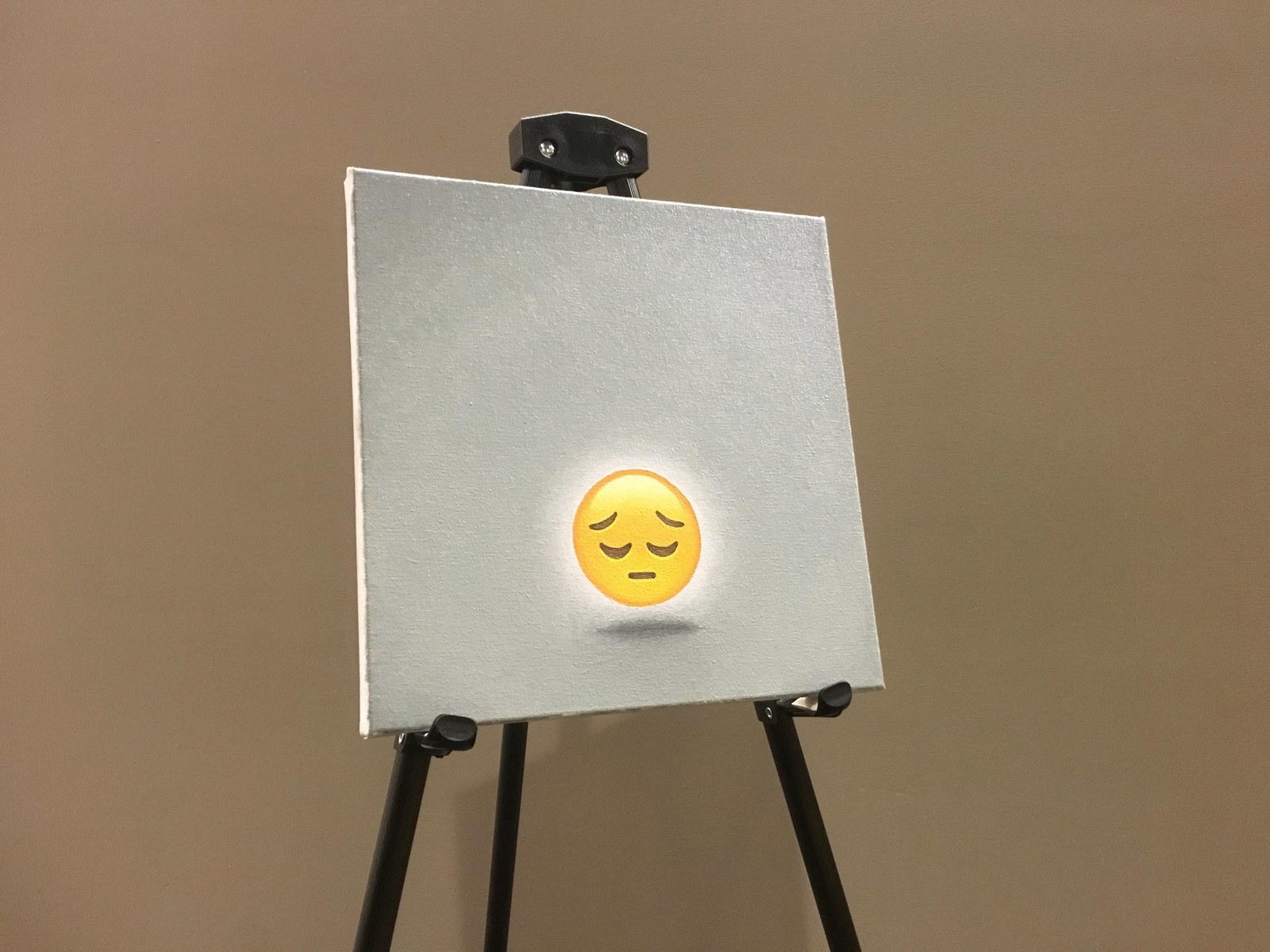
Highs and Lows
Emojicon 2016 was like a mashup of an academic conference on linguistics and a comic con, and the thrill of that juxtaposition helps explain why a community and a movement has sprung up around emojis to begin with.
During a talk at the event, MOMA’s Paul Galloway described emojis as a place where language stops and art picks up. We use emojis to describe our basest selves, our bluntest emotions — happy, angry, horny, hungry. But in the years since they’ve become a global vocabulary, we’ve discovered that emojis are also a tool for analyzing and understanding our shared humanity in an entirely new way.
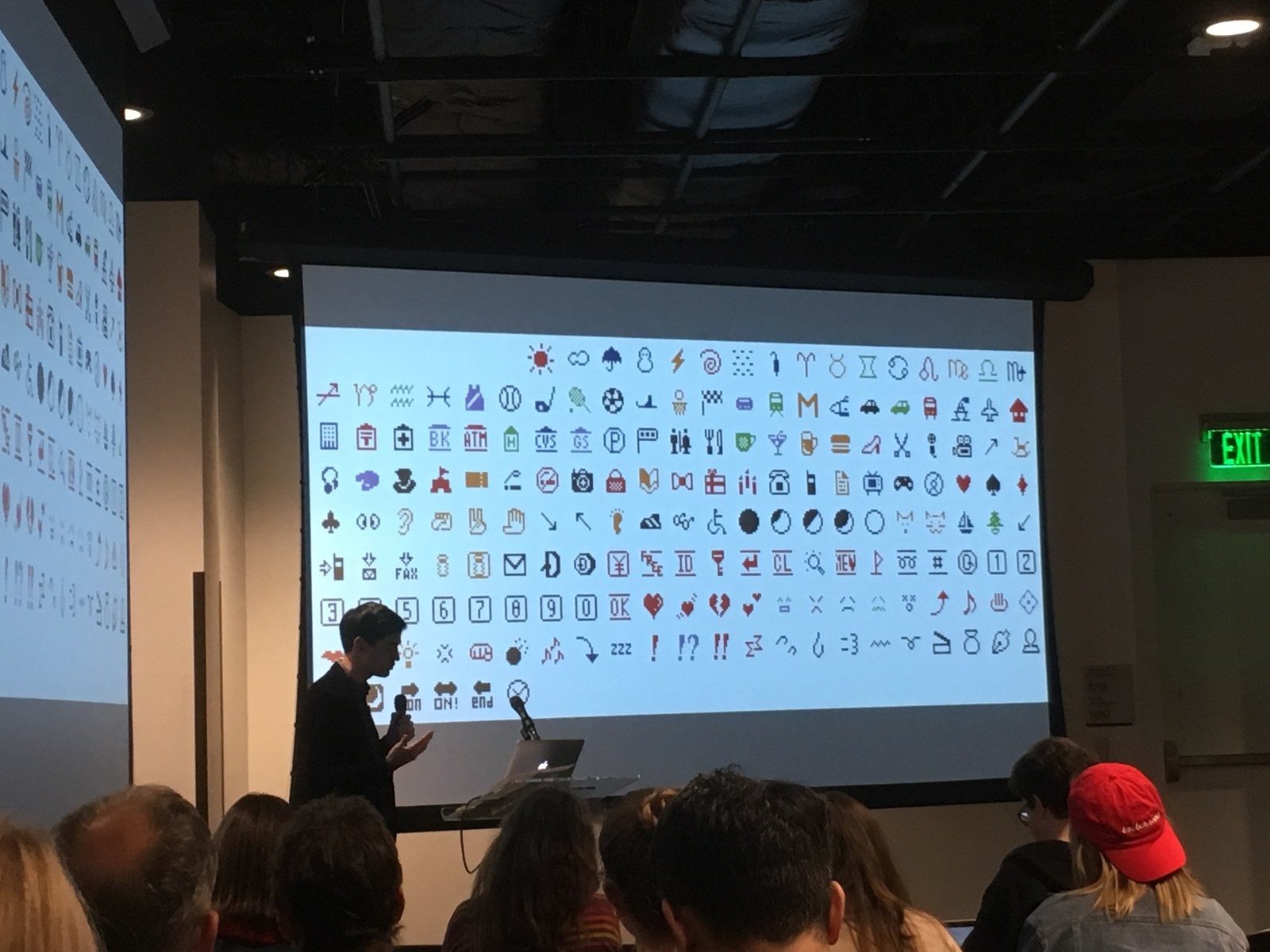
Take, for example, the guy using deep learning algorithms to predict which emojis we pair with which words: the ring for “she said yes,” the maple leaf for “420 tonight?”, the trashcan and the flame for “Donald Trump.” Or consider the Emojipedia founder who watched, confused, as the key emoji skyrocketed in popularity, only to discover the spike was driven by the mystical teachings of DJ Khaled — a musical artist whose ultra-positive Snapchats have become the stuff of legend — and his many, beloved “major keys” to success.
Or take Latoya Peterson, who has been working at ESPN on a series of emoji-like stickers that better reflect the black experience in sports and beyond. Peterson, who gave a talk called “The Art of Shade,” discussed how the meaning of symbols like emojis are mutable depending on the community they’re being used in.
“We can’t go back in time and delete 500 years of racism,” she said. “But what’s great about tech is, we’re creating new spaces. We’re creating new worlds.”
